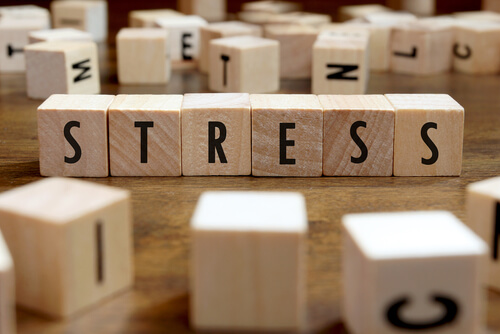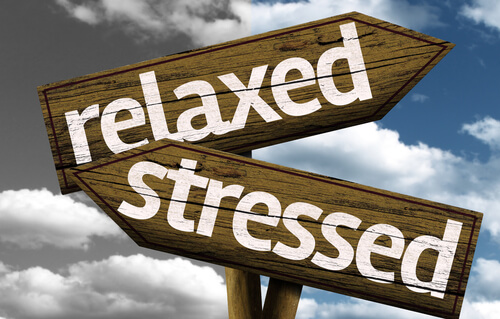Burnout Syndrome in Healthcare Professionals

Working in Healthcare can be a complicated task. Healthcare professionals are always working to keep or restore people’s health and this can be very stressful. Sadly, nowadays, many of these workers suffer from burnout syndrome.
In 1943, Abraham Maslow placed health on the top of his hierarchy of needs, next to the physiological needs such as sleeping, eating, and breathing, among others. Besides, he placed physical safety second, as part of the safety needs group.
Therefore, healthcare is very important. Thus, being unhealthy, or thinking you are, can raise an alarm, a lack of security, or make you feel threatened.

Causes of burnout syndrome
Hospitals can be places full of emotional scenes. The patients and their families can experience intense emotional reactions that can also affect healthcare providers. Studies have shown that the main stressors that affect healthcare providers are:
- Work schedules.
- Treating sick individuals who sometimes may experience crises.
- The feeling after a patient dies.
- Lawsuits against them.
Other medical professionals also point out the following:
- Being the bearer of bad news to people in an already compromised situation.
- The patient’s high expectations on their doctors and healthcare.
- Working against the clock in stressful situations.
- Work overload.
- A lack of medical resources to treat their patients.
It’s worth mentioning that their personal lives can also stress healthcare professionals. The most common and known are work-life balance and the relationships between them. There are strategies to lower their stress levels, because stress can keep them from doing their work.

Reducing burnout in healthcare professionals
Burnout syndrome among healthcare professional can cause:
- Low work satisfaction.
- Deteriorated work environment.
- Low work quality.
- Poor work attendance.
- Departure from the profession.
- Passive-aggressiveness towards patients.
Making changes in the usual strategies, work hierarchies, and methodologies could improve this. However, a healthcare professional can develop some skills to handle work stress.
Communicational skills
A recent study on burnout in healthcare professionals tried to discover if communicational skills had any influence on them. In conclusion, the study found that professionals with better communicational skills suffered less emotional fatigue. Besides, they feel a stronger sense of personal fulfillment from their work.
Communicational skills don’t only benefit the professional; they can also positively influence the patient. Communication between healthcare provider and patient is an essential part of the healing process. If gives them both confidence in each other and improves the clinical experience.
Therapeutic relationship
Studies show that the better the therapeutic relationship, the better the clinical results. This happens due to:
- A better diagnostic ability from knowing the psychosocial variables of the patient.
- Increased placebo effect.
- A bigger engagement to follow treatment.
- A realistic choice for treatment by letting patients become involved in the decision-making process.

Emotional intelligence
There’s a negative relationship between emotional intelligence and work stress. Most studies focus their analyses on nursing. These results indicate that the stronger the emotional intelligence, the less stress you suffer from. The results can be used in other medical settings as well.
One way to improve emotional intelligence is through emotional regulation. How? Psychology considers emotional regulation a basic emotional intelligence process. Through emotional regulation, you’ll be capable of controlling and handling your emotions in stressful situations.
In short, it’s clear that healthcare professionals are under a lot of stress. Many times, these professionals are subjected to external factors. On the other hand, they can work on what they can control.
Working in Healthcare can be a complicated task. Healthcare professionals are always working to keep or restore people’s health and this can be very stressful. Sadly, nowadays, many of these workers suffer from burnout syndrome.
In 1943, Abraham Maslow placed health on the top of his hierarchy of needs, next to the physiological needs such as sleeping, eating, and breathing, among others. Besides, he placed physical safety second, as part of the safety needs group.
Therefore, healthcare is very important. Thus, being unhealthy, or thinking you are, can raise an alarm, a lack of security, or make you feel threatened.

Causes of burnout syndrome
Hospitals can be places full of emotional scenes. The patients and their families can experience intense emotional reactions that can also affect healthcare providers. Studies have shown that the main stressors that affect healthcare providers are:
- Work schedules.
- Treating sick individuals who sometimes may experience crises.
- The feeling after a patient dies.
- Lawsuits against them.
Other medical professionals also point out the following:
- Being the bearer of bad news to people in an already compromised situation.
- The patient’s high expectations on their doctors and healthcare.
- Working against the clock in stressful situations.
- Work overload.
- A lack of medical resources to treat their patients.
It’s worth mentioning that their personal lives can also stress healthcare professionals. The most common and known are work-life balance and the relationships between them. There are strategies to lower their stress levels, because stress can keep them from doing their work.

Reducing burnout in healthcare professionals
Burnout syndrome among healthcare professional can cause:
- Low work satisfaction.
- Deteriorated work environment.
- Low work quality.
- Poor work attendance.
- Departure from the profession.
- Passive-aggressiveness towards patients.
Making changes in the usual strategies, work hierarchies, and methodologies could improve this. However, a healthcare professional can develop some skills to handle work stress.
Communicational skills
A recent study on burnout in healthcare professionals tried to discover if communicational skills had any influence on them. In conclusion, the study found that professionals with better communicational skills suffered less emotional fatigue. Besides, they feel a stronger sense of personal fulfillment from their work.
Communicational skills don’t only benefit the professional; they can also positively influence the patient. Communication between healthcare provider and patient is an essential part of the healing process. If gives them both confidence in each other and improves the clinical experience.
Therapeutic relationship
Studies show that the better the therapeutic relationship, the better the clinical results. This happens due to:
- A better diagnostic ability from knowing the psychosocial variables of the patient.
- Increased placebo effect.
- A bigger engagement to follow treatment.
- A realistic choice for treatment by letting patients become involved in the decision-making process.

Emotional intelligence
There’s a negative relationship between emotional intelligence and work stress. Most studies focus their analyses on nursing. These results indicate that the stronger the emotional intelligence, the less stress you suffer from. The results can be used in other medical settings as well.
One way to improve emotional intelligence is through emotional regulation. How? Psychology considers emotional regulation a basic emotional intelligence process. Through emotional regulation, you’ll be capable of controlling and handling your emotions in stressful situations.
In short, it’s clear that healthcare professionals are under a lot of stress. Many times, these professionals are subjected to external factors. On the other hand, they can work on what they can control.
All cited sources were thoroughly reviewed by our team to ensure their quality, reliability, currency, and validity. The bibliography of this article was considered reliable and of academic or scientific accuracy.
- Muñoz, M. D., & de la Fuente, F. V. (2010). La Pirámide de Necesidades de Abraham Maslow. Obtenido de HYPERLINK” http://coebioetica. salud-oaxaca. gob. mx/wp-content/uploads/2018/libros/ceboax-0530. pdf” http://coebioetica. salud-oaxaca. gob. mx/wp-content/uploads/2018/libros/ceboax-0530. pdf.
- Turienzo, R. (2016). El pequeño libro de la motivación. Alienta.
- Bianchini Matamoros, M. (1997). El Síndrome del Burnout en personal profesional de la salud. Medicina Legal de Costa Rica, 13(2-1-2), 189-192.
- Fernández, B. P. (2010). Inteligencia emocional para médicos del siglo XXI. El médico, 22-25.
- Leal-Costa, C., Díaz-Agea, J. L., Tirado-González, S., Rodríguez-Marín, J., & Van-der Hofstadt, C. J. (2015, August). Las habilidades de comunicación como factor preventivo del síndrome de Burnout en los profesionales de la salud. In Anales del Sistema Sanitario de Navarra (Vol. 38, No. 2, pp. 213-223).
- Martínez, M. Á. M., & Ibañez, L. M. (2012). La habilidad de comunicar: caminando hacia el paciente. Revista Española de Comunicación en Salud, 3(2), 158-166.
- Bajo Gallego, Y., & González Hervías, R. (2014). La salud emocional y el desarrollo del bienestar enfermero. Metas de Enfermería, 17(10), 12-16.
This text is provided for informational purposes only and does not replace consultation with a professional. If in doubt, consult your specialist.







